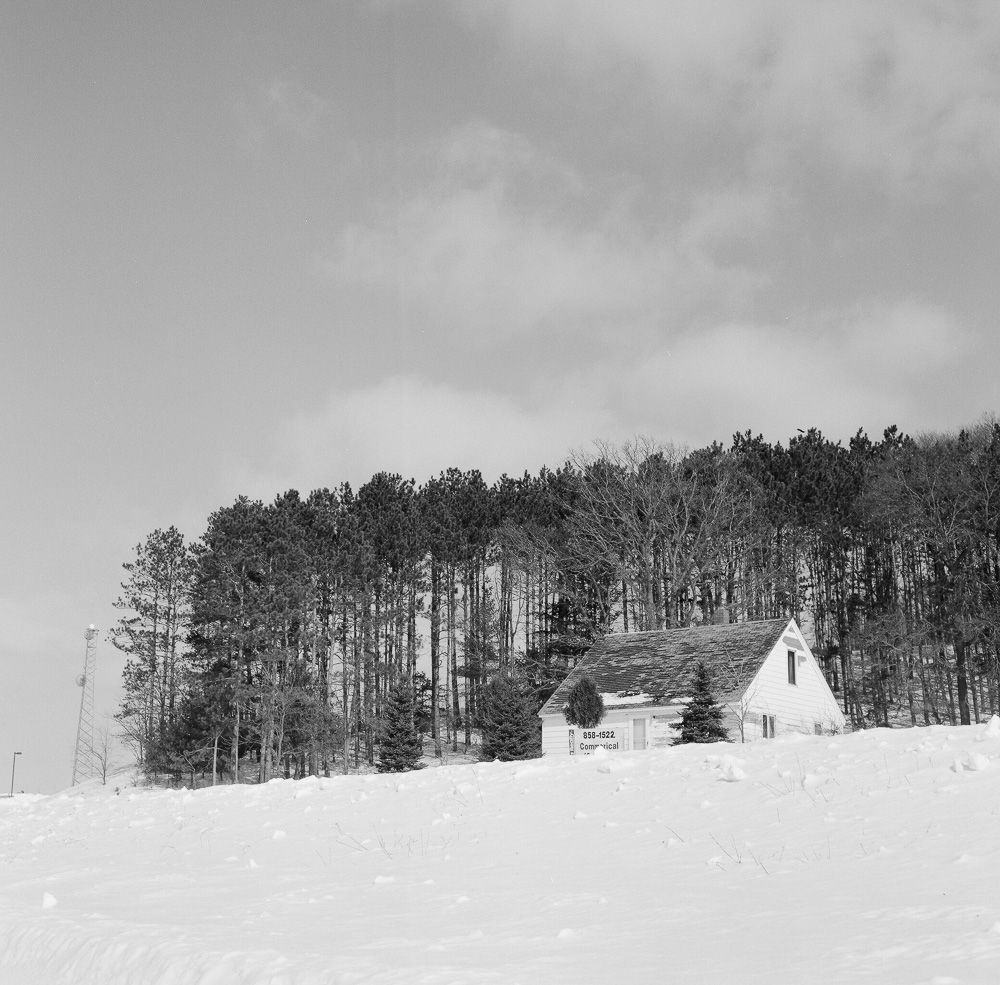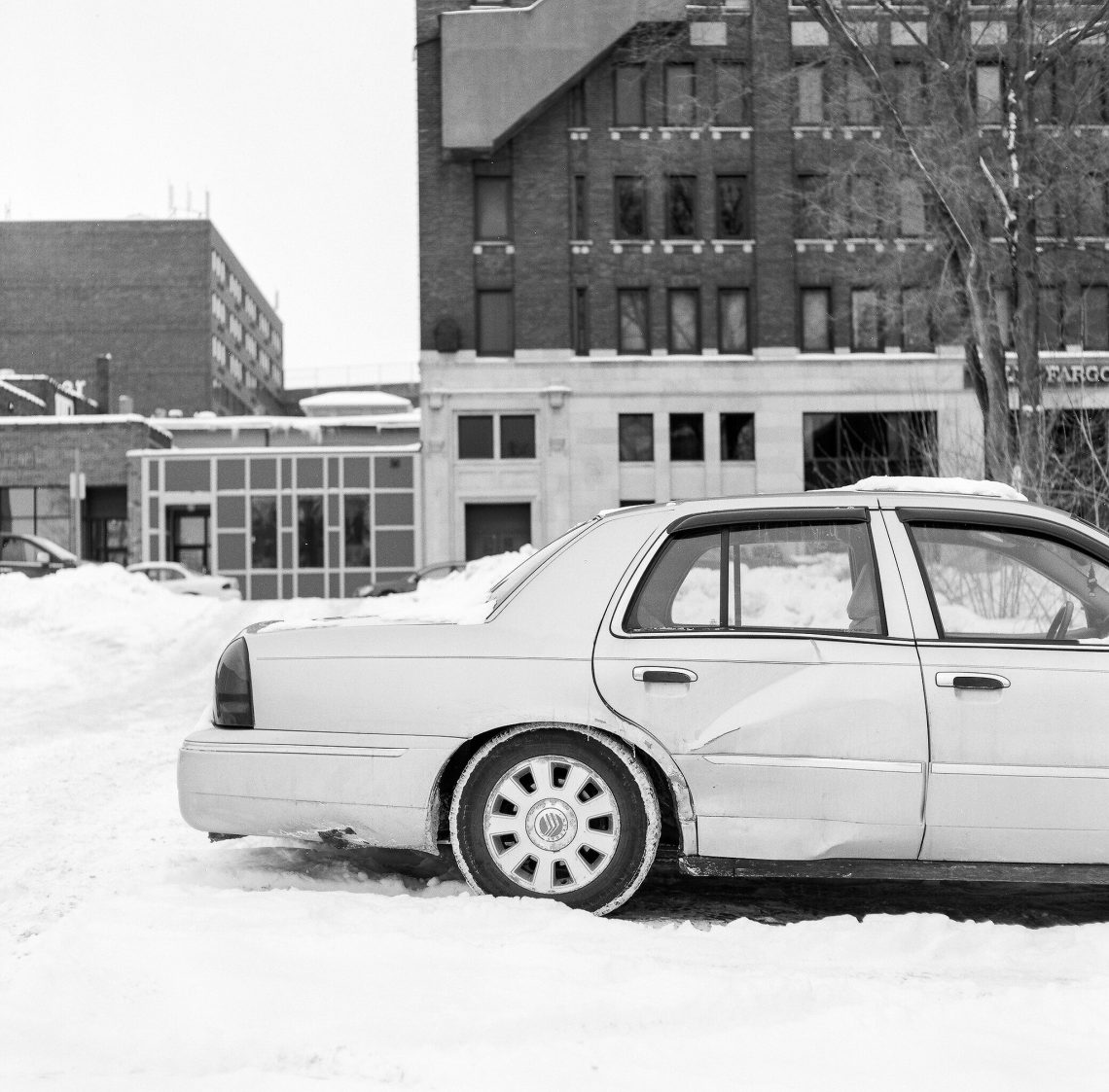
Wisconsin makes you appreciate each season for what it is: the fertile opening of springtime, the hot asphalt and high humidity of summer, the brittle quiet of autumn, the frigid slumber of winter. You come to understand why animals hibernate. In the places I’ve lived since I moved away (the West Coast, the South), the way the seasons bleed hazily into each other is reminiscent of the kind of disconnect one gets after staying awake all night: a warped lack of barrier. As climate change accelerates globally, the barriers between seasons become less certain everywhere. In Eau Claire, it snowed in May the year after I moved.
Absence makes the heart grow stupid and wistful, so every memory I have of Eau Claire is tinged with an ample amount of nostalgia. I remember everything better than it was: gone is the dirty slush on the side of the road that seeps inside your boots well into March, replaced by the glittering surface of a fresh December snowfall. Gone are the piles of frozen vomit on the sidewalk expelled by drunken revelers on their way home from the bar, gone are the stolen bikes tossed into the river, gone is the cold so deep it makes the air taste bitter. Memories of my hometown flicker like home videos; the amber creeks sparkling in the summer sunlight, dipping bare legs in what, to your jejune mind, looks like apple juice, bruising knees against river rocks. Down along the creek / I remember something.
Life in Eau Claire revolves around water, the name of the town itself being the French settlers’ name for what was previously Chippewa and Ojibwe country: Clear Water. Completing your daily errands requires you to cross several bridges; if you are traveling on foot you may grasp the ledge and peer over to look for ducks or turtles or ice floes. There are mountainous thunderheads swollen with rainwater in the summer, and then, well, there is the winter. The river struggles against its own motion to partially freeze in tiny icebergs, soccer fields are transformed into makeshift ice rinks, kids sled on plastic sleds from K-Mart and inner tubes for the summer lake and X-Ray paper from the closed-down factory that someone’s dad has access to, any travel that takes place on foot is a kind of meticulous glide. Rock salt stiffens the canvas of your sneakers. All the cartoons told you about the dangers of quicksand but never icicles, although they’re lurking above your doorframe. It takes longer to get dressed for walking the dog than it does to actually walk the dog. You fall asleep on your parents’ futon watching the Winter Olympics.
*
People familiar with Bon Iver are usually also vaguely familiar with the source of the band name: the expression bon hiver, meaning good winter, a greeting said after a long period of isolation, shouted joyfully like eureka. I always pictured an exaggerated sort of Walden-like moment of artistic genius: Justin Vernon in a cozy cabin surrounded by tall firs and birches, scribbling music furiously until he emerges, triumphantly, into the snowy forest, hailing the cardinals and squirrels with a hearty Bon hiver! In reality, Vernon’s realization took place after something of a depressive spiral wherein his previous musical project broke up, his girlfriend split up with him, and he contracted mononucleosis which spread to his liver. Convalescing in his father’s cabin in Dunn County, he was watching DVDs of “Northern Exposure,” a 1990 comedy-drama about the eccentric residents of a fictional small town in Alaska, when he heard the phrase. He first transcribed it as “boniverre,” removing the H from hiver because the word reminded him too much of “liver,” the site of his ailment.
Vernon is not a stranger to manipulating the structure of words and language — in his music, his voice functions better as an instrument of its own than a vessel for lyrics, swelling with falsetto and vibrating with artistic autotune. Not to say that the lyrics don’t matter: the tenth-anniversary edition of the “Blood Bank” EP includes a live version of the album’s eponymous song, where the guitars crash in alongside the lyric “Then the snow started falling,” like a surge of sadness and pride and longing. I will never be able to uncouple Bon Iver’s music from Eau Claire, and that’s probably intentional. Justin Vernon has a tattoo of Wisconsin under his chest (just above what, charmingly, appears to be lyrics from an Indigo Girls song) with the counties he has fond memories of highlighted in red. Pitchfork referred to Eau Claire as Bon Iver, Wisconsin.

Even in 2009, before his Eaux Claires music festival existed or before there was a performing arts center downtown funded by Vernon (both of which are somewhat overrated, according to a local’s poll in the city’s alt-weekly Volume One), Bon Iver seemed to haunt the town. As we navigated the school district and the inherent discomfort of middle school, teachers tried to connect with us by talking about what kind of a student Vernon was, his creativity. The word hipster was entering the lexicon, and my friends, who had begun to pad their iTunes libraries with albums of Neutral Milk Hotel and Sufjan Stevens alongside the more emo leanings of Fall Out Boy and Panic! at the Disco, easily slipped into that role. Hipsters didn’t so much take over in Eau Claire as Eau Claire had been predisposed to hipsters in the first place, its downtown district being primarily comprised of coffee shops, tattoo parlors, and bars. The bearded woodsman image of Bon Iver was just about as hipster as you could get, and we embraced it, using his lyrics to express our trivial preteen feelings on our Facebook statuses. I clipped Mike Paulus’ 2009 ranting article on hipsters out of Volume One and stuck it in my binder. Paulus wrote that a lot of people “honestly like having a backyard garden, supporting local people and businesses, and riding a bike. And it’s my hope that someday — long after the super-tight pants, the mismatched knee-high socks, the empty Pabst Blue Ribbon cans, and the creepy French moustaches are thrown into the attic — these young adults will still be doing these great things because it’s just what they like.” Before hipsters became synonymous with gentrification, insufferable quirkiness, and a lack of class consciousness, we were just enjoying wearing slouchy beanies and developing an interest in playing the mandolin. Of course, when “Roslyn” was included on the soundtrack for the film adaptation of Twilight: New Moon, we watched with contempt as Bon Iver swept the community with more popularity than ever before. “Ugh, I bet they’ve only heard ‘Skinny Love,’” we commented about our classmates who previously had mostly listened to Top 40 radio. Nevermind the fact that we ourselves had devoured those thick vampire novels in a desperate attempt to fit in just a couple of years before.
After my family and I moved away from Eau Claire due to a mix of job changes, restlessness, and Governor Scott Walker’s disregard for the quality of the public school system, the city, against my selfish wishes, kept growing without me. I watched from afar as the kids I had grown up with graduated high school and entered college, became dancers and teachers and trombone players and artisanal bread makers. I haven’t been back to Eau Claire in almost ten years, so the city is unchanged in my mind, a frozen-over lake. Of course, this couldn’t be further from the truth. Thanks to “the Bon Iver effect,” Eau Claire is now Wisconsin’s second-fastest-growing city behind Madison. But the novelty of someone from your hometown rising to success has worn off, and I often saw those same friends refer to wanting to get out of Eau Claire, painting it as a rut or a dead end. Perhaps with overexposure, I would have felt that way too and eventually started to long for something more. If Justin Vernon ever had that desire, he doesn’t convey it. He tethers himself to the region through sly winks of local culture — “715,” Eau Claire’s area code; and a local radio jingle sped up and woven through the track “33 ‘GOD’”. In a 2016 interview, Vernon said that the album 22, A Million is “a bridge for me from Eau Claire to understanding the rest of the world.” Vernon now uses his platform to enact change within and beyond his community: he has endorsed Bernie Sanders for President, and opened for the senator at his Iowa rally in February 2020, alongside Vampire Weekend. Sales of merch for the release of the 10-year-anniversary edition Blood Bank EP are going partially to a Chippewa Valley food bank and an artist relief organization.
When I tell people I’m from Wisconsin, they usually ask me how it’s different from where I live now, or whether I root for the Packers, or what winter is like. I like when people ask me about winter. I get the chance to show off a little bit, usually recounting stories of schools not being canceled even with -40°F wind chills, or blizzards so strong you can’t see your hands in front of you, or cross-country skiing trips along Lake Superior. But what I want to say, when people ask me what the winter is like, is that Wisconsin winter is like Bon Iver. Snowfall in Eau Claire sounds like layered synths, like falsetto, like acoustic guitar chords and in-medias-res love stories. Then the snow started falling / We were stuck out in your car. / You were rubbing both my hands / chewing on a candy bar. Justin Vernon’s music is a bridge, for me, back to Eau Claire, no matter where I am.
More from this issue